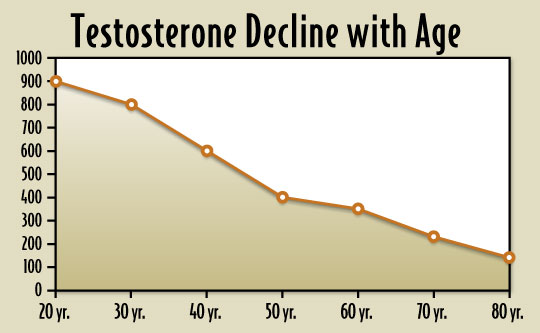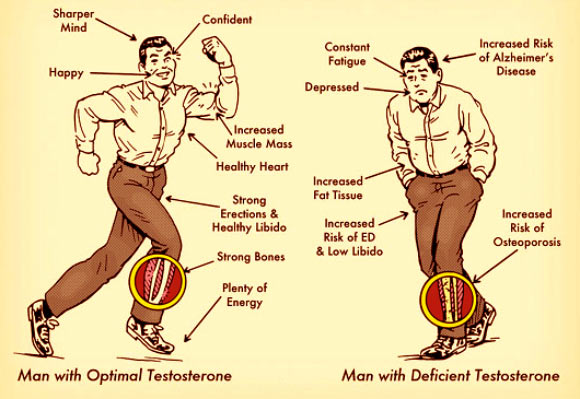How to Evaluate Testosterone Levels in Men
Author: Brian Hildebrandt, Last Updated: Sept 21, 2016
Normal and healthy testosterone level ranges – and it’s clinical relevance, is the top rated search term here on Men’s Hormonal Health.
That’s a rather telling statement about the current gap between; the average patients’ needs being met, and the overall state of doctors’ knowledge on the subject.
Men are having trouble getting recognized as having low testosterone for the most part, and doctors are gun shy or ignorant at diagnosing it.
The driving factors for this are generally two fold;
1. Doctor’s tend to recognize testosterone ranges based on values averaged from 95% of the adult male population, independent of age or health status.
“Average” is one thing; optimal for good health is another. Highly different, especially for a health marker that fluctuates so greatly over a human male’s life time.
2. A large portion of testosterone’s effects tends to influence subjective health symptoms – things like; energy, mood, motivation, pain syndromes, and sexual function.
General depression also shares a number of symptoms, which can occur independent of a testosterone deficiency.
The more objective signs of testosterone deficiency; muscle and fat mass, osteoporosis development, heart attack risk markers, cholesterol levels, etc… can co-occur with other conditions or be due to lifestyle factors – thus making it difficult to prove causation that way as well.

Diagnosing Optimal Testosterone Levels
You need a doctor versed in both the science and art of determining healthy testosterone levels. A doctor that will take in to account both optimal testosterone levels for your age, and your own personal sensitivity of symptoms to a deficiency.
One man may not feel symptoms until his testosterone level reaches below 250 ng/dl, whereas for another the threshold may not appear until 500 ng/dl.
Unfortunately, finding an exact set point for normal testosterone levels within the general population, isn’t so cut and dried.
Your Best Medical Advocate
So what is a man to do in this situation? Use this information as a frame of reference to advocate for your own health.
If a doctor may not be as sensitive or educated as you desire – know to push a little harder, educate, or look elsewhere for a doctor that will eventually treat your problems seriously. A perfect plan for an imperfect world.
High Natural Testosterone Levels and Positive Character Traits
The heroic qualities of strength, courage, and ambition are all intimately intertwined with high testosterone levels.
Testosterone’s influence on innovation and progress, through the creation of original ideas and the motivation to achieve them, is partially what separates us from the fairer sex.

Photo credit: artofmanliness.com
Boy’s Testosterone Levels and Development
A boy’s testosterone levels may influence many areas of development; from muscle growth and voice pitch, penis and testicular size, pubic and auxiliary hair growth, to cognition and psychological temperament.
This is governed by one of testosterone’s main metabolites; DHT (dihydrotestosterone), which is primarily responsible for the androgenic (masculinizing) traits in males.